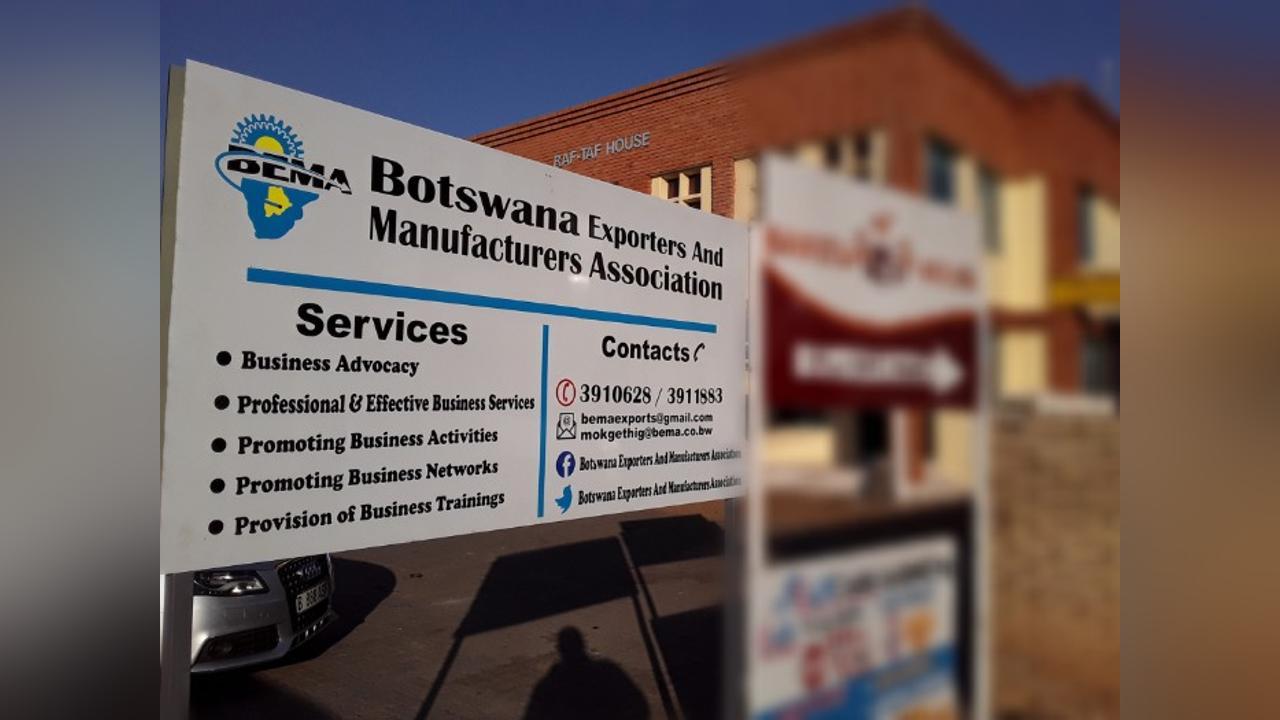Africa-Press – Botswana. Botswana Exporters and Manufacturing Association (BEMA) members have presented challenges hindering the growth of the manufacturing and export sector during a network session with Minister of Trade and Entrepreneurship, Mr Tiroeaone Ntsima in Francistown on Friday.
Some BEMA members voiced concerns about delays in government payments for goods and services they had provided. Mr Unity Mosomodi of Chinkwa Bakery in Tutume highlighted the inconsistency and unreliability of government payments, despite consistent business delivery. He further criticised procurement practices, citing instances where contracts were awarded to businesses outside Tutume district, despite local producers processing the capacity to fulfill the orders’ demand. This, he argued, undermined efforts to empower local businesses and stimulate district economic growth.
The issue of corruption was equally prevalent during the session, with Ms Oreneile Olatotse of Superior Crumbs Bakery describing a culture of bribery within government departments deterring some businesses from engaging with government tenders. She also highlighted the critical need for more food testing facilities across Botswana, noting that the single facility in Kanye created delays and potential spoilage for products awaiting testing.
Several other attendees echoed the same concerns, citing examples of procurement officers registering their own companies to steal ideas and systematically securing tenders. The pervasive nature of corruption, allegedly by some government officials was seen as a major obstacle to fair competition and sustainable business growth. Some participants advocated for barring public servants from tendering processes to curb this practice.
Additional challenges raised included the high travelling cost they encountered in the process of product listing since it was only done in Gaborone, the inadequacy of specific financial support from government in the manufacturing sector, overly restrictive CEDA guidelines, and insufficient support to manufacturers beyond those participating in poverty eradication programmes. The lack of support for mid-career entrepreneurs was also a point of concern with parastatal entities also implicated in the problem of delayed payments.
Supply chain issues with retail chains, characterised by excessive demands from retailers, also added to the list of hurdles faced by local manufacturers. Ms Tshoganetso Brenyewu of Décor Waves also lamented the economic downturn in Francistown following mine closers, urging for government’s intervention to revitalise the city’s economy.
In his address, Minister Ntsima acknowledged Botswana’s commitment to manufacturing and export diversification as crucial to achieving a high-income export led economy. He reiterated the government’s focus on industrial development, import substitution, value addition, and strengthening value chains across various sectors.
Mr Ntsima emphasised the government’s dedication to fostering a supportive policy environment, streamlining bureaucratic processes, enhancing trade infrastructure, and promoting regional integration through initiatives such as the African Continental Free Trade Area (AfCFTA). Addressing concerns by BEMA members regarding conflict of interest and corruption within government procurement, Minister Ntsima revealed that the Public Service Act was currently under review. The goal, he said, was to clarify and strengthen conflict of interest provisions to prevent situations where civil servants gained an unfair advantage in tender processes.
He rejected outright bans on civil servants participating in tenders emphasing that the review aimed to close loopholes that allowed such conflicts to arise. Currently, the only mechanism in place requires civil servants to declare their interest in tenders, a system which the minister acknowledged as insufficient.
The Minister further underscored the new administration’s commitment to prioritising locally manufactured goods and services.To combat corruption, Minister Ntsima highlighted the government’s implementation of forensic audits as a key strategy. He emphasised that the audits were intended to be an ongoing measure, carried out irrespective of changes in government, to ensure a continuous fight against corruption and minimise its impact on national economy.
For More News And Analysis About Botswana Follow Africa-Press






